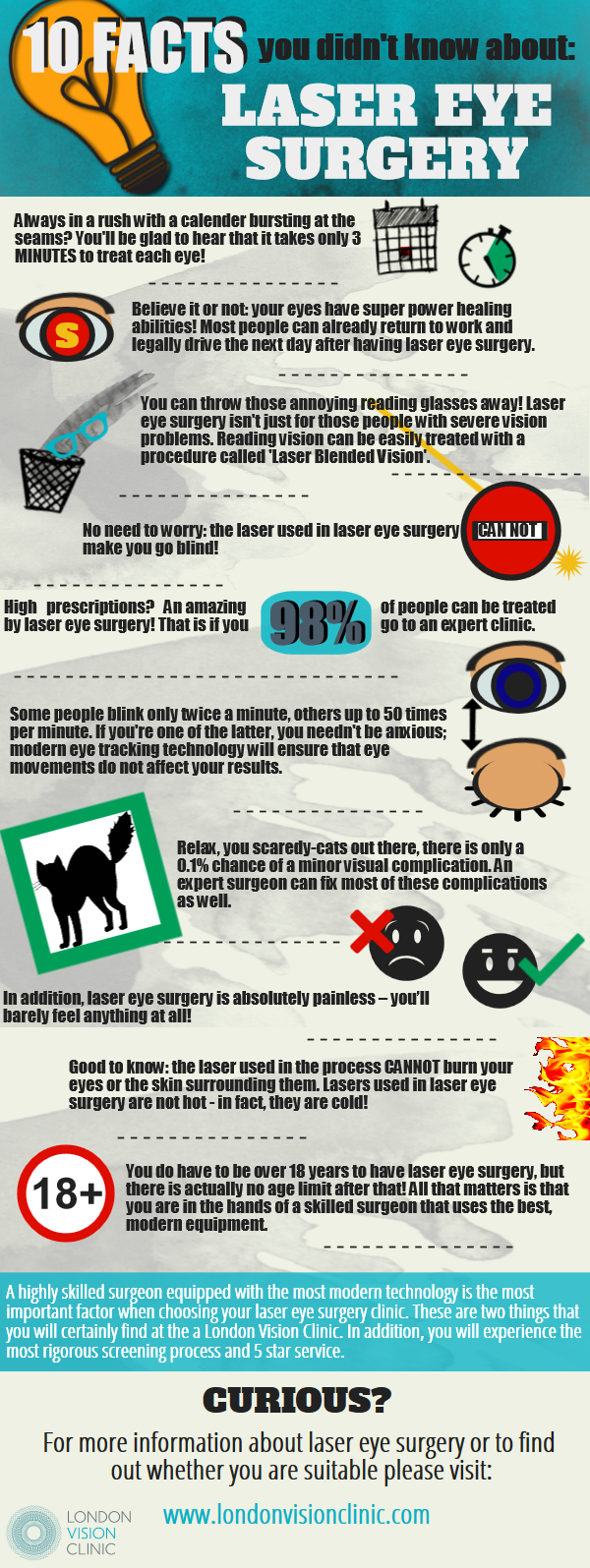Refractive Lens Exchange: A Comprehensive Guidebook For Ideal Vision
Refractive Lens Exchange: A Comprehensive Guidebook For Ideal Vision
Blog Article
Web Content By-Edmondson Kessler
If you more than 40 and dealing with vision concerns like hyperopia or nearsightedness, Refractive Lens Exchange (RLE) could be worth taking into consideration. This treatment replaces your natural lens with an artificial one, potentially lowering your dependence on glasses. While the benefits are appealing, it's crucial to recognize the dangers and eligibility needs. What should you know prior to making a decision that could alter your vision permanently? Let's discover this topic further.
Understanding Refractive Lens Exchange
Recognizing Refractive Lens Exchange (RLE) can be critical for those considering vision improvement alternatives.
RLE is a procedure that changes your eye's natural lens with a man-made intraocular lens. It's primarily focused on dealing with extreme refractive mistakes, such as hyperopia, myopia, or presbyopia.
Throughout the treatment, your specialist will certainly eliminate your over cast or clear lens and change it with a lens tailored to your vision needs. This alternative is commonly taken into consideration for people over 40 that might not be suitable candidates for LASIK.
By choosing RLE, you're not simply enhancing your vision; you're additionally possibly decreasing your dependence on glasses or call lenses.
Comprehending exactly how RLE jobs will certainly equip you to make informed decisions about your vision health and wellness.
Benefits and Threats of RLE
Picking RLE not just uses an opportunity to improve your vision however likewise features its own collection of benefits and threats.
One substantial benefit is the potential for clearer vision, reducing or removing your reliance on glasses or contact lenses. You might also experience a broader range of vision, particularly if you go with multifocal lenses.
Nonetheless, there are after cataract surgery cloudy vision included, such as infection, problems during surgical procedure, or dissatisfaction with the results. Some individuals experience aesthetic disturbances like halos or glare.
Highly recommended Web-site to evaluate these benefits and threats thoroughly. Consulting with your eye care professional can help you make an educated decision that lines up with your vision objectives and lifestyle.
Eligibility Criteria for Refractive Lens Exchange
Prior to taking into consideration Refractive Lens Exchange (RLE), it's vital to determine if you fulfill the eligibility criteria. Normally, you're a good prospect if you more than 40 years old and have a stable prescription.
You ought to also be experiencing refractive errors like myopia, hyperopia, or presbyopia. It is very important to have healthy eyes with no significant diseases, such as cataracts or glaucoma.
Additionally, you ought to be in great overall health and not have any conditions that might influence healing, like uncontrolled diabetes mellitus. If as cataract surgery use call lenses, you might need to quit using them for a while prior to your analysis.
Consulting with an eye care specialist will certainly aid you understand your certain circumstance and whether RLE is right for you.
Verdict
In conclusion, refractive lens exchange can transform your vision and lower your dependence on glasses or get in touches with. While it supplies various advantages, it's vital to understand the threats and guarantee you meet the qualification requirements. Consulting with an eye care specialist will certainly help you make an enlightened choice customized to your demands. If you're considering RLE, put in the time to explore your options and review any concerns, paving the way for more clear, much more vivid eyesight.
